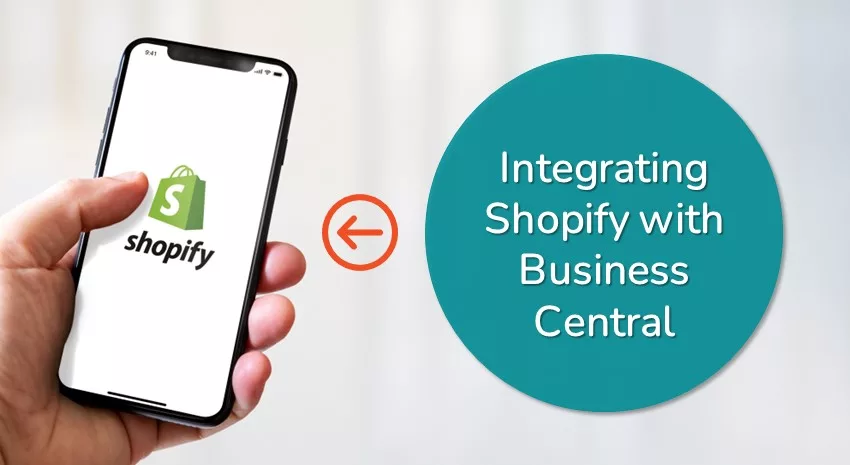Why and How to Integrate Microsoft Dynamics 365 Business Central with Shopify eCommerce

Over the last ten years, eCommerce business has grown exponentially in size and, luckily for merchants, so has the technology to support bigger and better products. However, the complexity can be a huge challenge for many businesses that leverage online sales or follow an omnichannel business model. But making sales is necessary to survive, and one way to support that effort is by adding more customer service. The problem with that strategy is that it can increase overhead. Is there another way to achieve the same end? Yes…by integrating your ERP system with your eCommerce platform(s), automating the process of creating new customers. Integrated eCommerce/ERP solutions like Shopify and Dynamics 365 Business Central do that and more:
- Integrating multiple eCommerce platforms
- Seamless, real-time inventory
- Customer synchronization
- Automation of new customer accounts
- Automating sales orders
- Product synchronization
How do you integrate your Shopify eCommerce platform with Dynamics 365 Business Central?
If you are using Dynamics Business Central as your ERP solution and Shopify as your eCommerce platform, you have two great options for integrating your eCommerce processes: the Channel Sales Manager (CSM) for Shopify add-on and the Microsoft Business Central Shopify Connector.
Channel Sales Manager (CSM) connects multiple eCommerce platforms, including Shopify, to ERP functions. CSM’s core technology is built inside of Business Central and can produce automated order retrieval, send order and invoice information to eCommerce platforms in real-time, deliver real-time product inventory quantities, and more. CSM also delivers a two-way exchange of customer data between Shopify and Business Central. It can produce customer synchronization for both systems, retrieve sales orders and credit orders automatically, and manage each step of the customer order or automatically create a sales order from a web purchase.
Microsoft’s Business Central Shopify Connector provides a connection between the two systems to synchronize orders, stock, and customer information to ensure merchants can fulfill orders faster and better serve their customers.
If it sounds like these two offerings are similar, they are. So, how do you decide which is right for your company? We’ve provided a feature-by-feature comparison to help you determine which features you require.
CSM for Shopify vs. Microsoft Business Central Shopify Connector
| CSM for Shopify | Feature | Business Central Shopify Connector |
|---|---|---|
| Get Shopify locations | ||
| Retrieve Shopify shipment methods | ||
| Retrieve Shopify payment methods | ||
| Import countries and counties to populate tax areas | ||
| Retrieve order information | ||
| Automatically validate and build BC/NAV sales orders from order data received | ||
| Send shipment tracking information | ||
| Send invoice | ||
| Payment capture instructions | ||
| Optionally create BC/NAV customers & contacts when a new customer is detected in the order information received from the external system | ||
| Create customers on the eCommerce marketplace platform from customer/contact information in BC/NAV | ||
| Detect fraud for different risk levels on the Shopify orders | ||
| Retrieve order refunds from Shopify and automatically build the related credit memos in BC | ||
| Add item to Shopify and synchronize to Shopify in batches | ||
| Sync configurable items with variants between Shopify and BC | ||
| Sync item price, image, and inventory | ||
| Allow multiple images for the listing item | ||
| SEO support (i.e., SEO Title, SEO Description) | ||
| Support Shopify variants | ||
| HTML description | ||
| Shopify site preview URL | ||
| Add product tags and synchronize to Shopify | ||
| Support gift cards |
for Shopify add-on for Dynamics 365 Business Central and Microsoft’s Business Central Shopify Connector
ArcherPoint can integrate the Shopify solution of your choice
Once you’ve understood what each product has to offer, contact ArcherPoint for help with the next steps. We have decades of experience with NAV and Business Central as well as experience with CSM and the Business Central Shopify Connector and can ensure your eCommerce is working in synch with Business Central. Can’t decide which is best for you? We’ll talk to you about your business model and help you make an informed decision.
